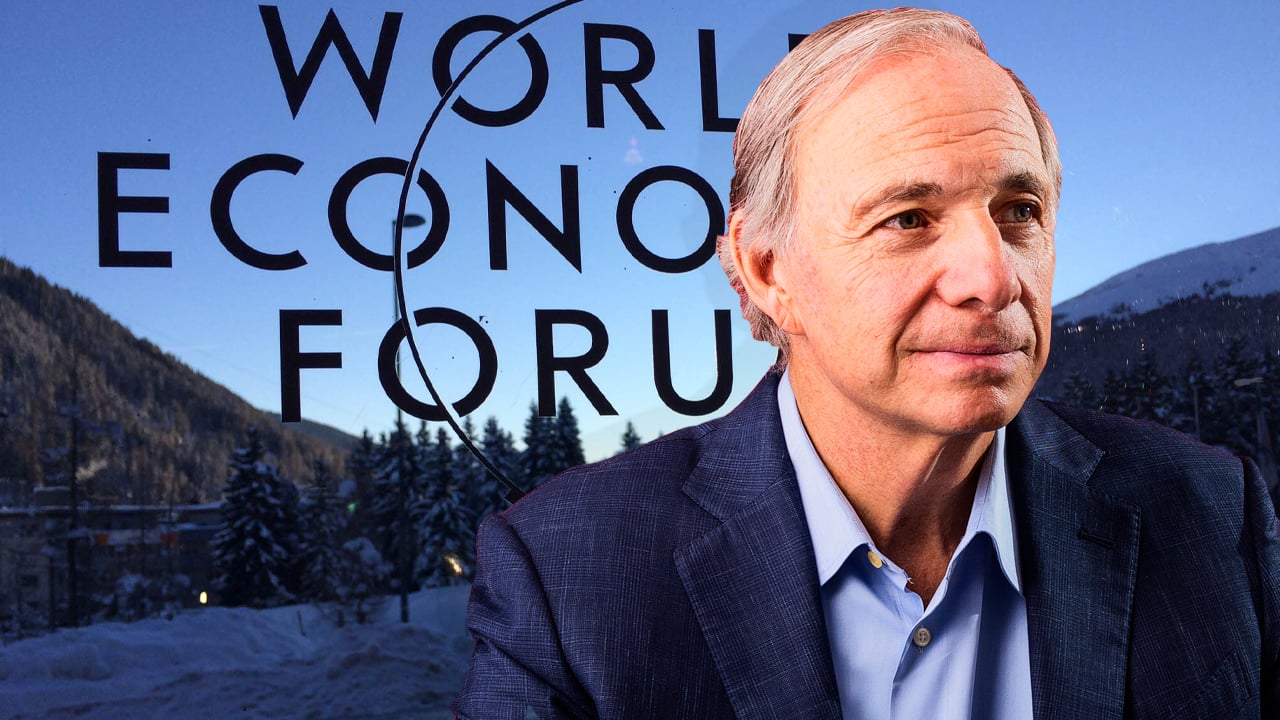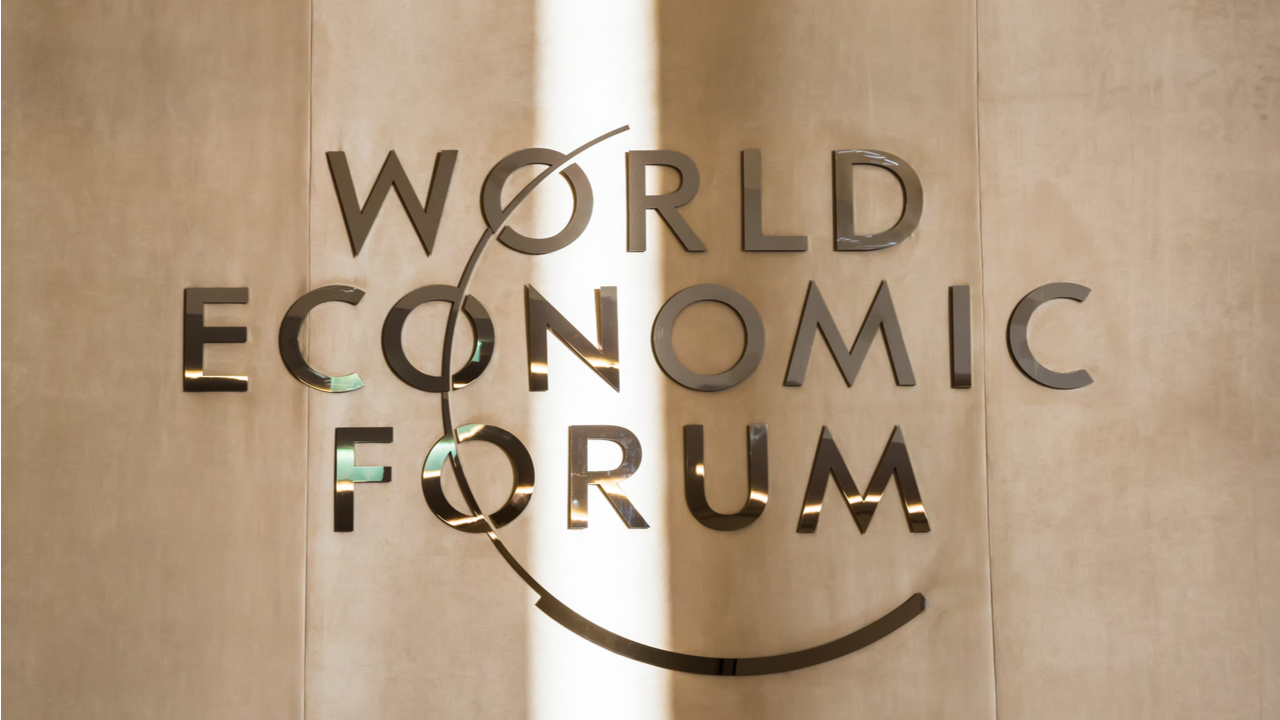 A new survey has found people’s opinion of the metaverse in emerging countries is significantly more positive than in their developed counterparts. The study, carried out by Ipsos for the World Economic Forum (WEF), also shows that Latam countries are among the most enthusiastic about the future of the metaverse and its applications for different […]
A new survey has found people’s opinion of the metaverse in emerging countries is significantly more positive than in their developed counterparts. The study, carried out by Ipsos for the World Economic Forum (WEF), also shows that Latam countries are among the most enthusiastic about the future of the metaverse and its applications for different […] From a desperate investor’s ill-advised visit to Terra co-founder Do Kwon’s house resulting in an arrest, the announcement of a new Terra network, and blockchain talk at Davos, to predictions of U.S. economic collapse if inflation isn’t reigned in quickly, there’s no shortage of action-packed crypto stories this past week. Without further ado, this is […]
From a desperate investor’s ill-advised visit to Terra co-founder Do Kwon’s house resulting in an arrest, the announcement of a new Terra network, and blockchain talk at Davos, to predictions of U.S. economic collapse if inflation isn’t reigned in quickly, there’s no shortage of action-packed crypto stories this past week. Without further ado, this is […]
Michael Miebach, CEO of Mastercard told an audience of blockchain executives that he expects SWIFT to phase out of existence in as little as five years' time.
Mastercard CEO Michael Miebach said on Tuesday that he does not expect SWIFT, one of the most widely used platforms for cross-border fiat transactions, to exist in five years' time.
Miebach was speaking at a panel session on central bank digital currencies (CBDCs), as part of the Global Blockchain Business Council (GBBC)’s Blockchain Central Davos conference, which ran adjacent to the World Economic Forum 2022 in Davos, Switzerland.
Kicking off GBBC’s #BlockchainCentral Davos session on CBDCs with @eva_szalay @FT @YuvalRooz @digitalassetcom @Jbrookslassiter @Digital_Dollar_ @MiebachMichael @Mastercard @BIS_org @DBTreat @Accenture pic.twitter.com/C2fvgy0Bij
— Global Blockchain Business Council (GBBC) (@GBBCouncil) May 24, 2022
Towards the end of the panel discussion, when the moderator asked each panelist whether they thought SWIFT would still exist in five years' time, Miebach caused the audience to gasp in shock after answering “no”, according to a Cointelegraph reporter who attended the session.
The response had not been expected given his position at Mastercard, and that the panelists before him, including Jon Frost, a senior economist at Bank of International Settlements and Jennifer Lassiter, executive director of the Digital Dollar project, an organization tasked with exploring a United States CBDC had answered in the affirmative.
Other panelists following Miebach also took the affirmative viewpoint, including Yuval Rooz, CEO of Digital Asset, a data technology company and David Treat, director at Accenture and co-lead of the company’s blockchain business.
Cointelegraph approached Miebach immediately following the panel discussion, but was denied any further comment on the subject.
Later, a Mastercard spokesperson downplayed Miebach’s comments in an email statement:
“Let us clarify the intent of the on-stage comment, as it’s not as simple as a yes or no answer. Michael was simply reinforcing what SWIFT has previously said – their operations continue to evolve. Its current form will not be the same in the future. They are adding more functionality and moving past just being a messaging system.”
SWIFT processed 42 million messages a day last year, but transactions on the network can take several days to complete. The company has been striving to maintain its relevance in the international economic order, especially in regard to CBDCs.
To this end, SWIFT has been exploring the use of CBDCs to facilitate seamless cross-border payments from as early as May 2021 when it released a joint paper with Accenture looking at how digital currencies can help cross-border payments.
Related: WEF 2022: Blockchain community breaks stereotypes at Davos
On May 19, 2022, SWIFT announced its second round of experiments involving CBDCs, collaborating with French IT company Capgemini to explore the linking of domestic CBDCs to facilitate seamless cross-border payments.
We’re collaborating with @Capgemini to explore how SWIFT can interlink the multiple domestic-based #CBDC networks emerging worldwide to make cross-border payments with #DigitalCurrencies more seamless & frictionless.
— SWIFT (@swiftcommunity) May 19, 2022
Learn more: https://t.co/SgvjDf1dl4 pic.twitter.com/99g99A070H
Cointelegraph reporters on the ground at Davos noted that in another panel session titled “Rules of the Road for Digital Economy,” Miebach talked about the role regulation can take in reducing the unnecessary noise around a nascent technology like crypto.
“Not everyone is screaming for regulation but it does reduce the noise in the crypto world. Engaging actively with regulators and being principled, I am optimistic,” he said.

Developing countries have more than double the amount of people positive that the Metaverse will impact their lives and they'd use it daily in comparison to developed countries.
Excitement for the Metaverse and virtual or augmented reality (VR/AR) is much greater in developing countries than in high-income countries according to a survey conducted for the World Economic Forum (WEF).
Market research firm Ipsos released the results of the survey on May 25 showing the concept is now widely recognized: 52% of more than 21,000 adults surveyed across 29 countries are familiar with the Metaverse and 50% have positive feelings about engaging with it in daily life.
China, India, Peru, Saudi Arabia, and Colombia were the top five countries where two-thirds or more of respondents said they had positive feelings towards it.
China had the highest, with 78% harboring positive feelings toward using a metaverse daily followed by India at 75%.

The lowest scoring countries with less than one-thirds of respondents positive about the Metaverse were also countries with the highest incomes.
Japan scored the lowest with just 22% exhibiting positive feelings followed by the United Kingdom (26%), Belgium (30%), Canada (30%), France (31%), then Germany (31%).
Interestingly the concept was less familiar in those high income countries too, with fewer than 30% in France, Belgium and Germany.
Turkey was most familiar with the Metaverse at 86%, followed by India (80%), China (73%) and the higher income country of South Korea (71%). Poland scored the lowest at 27%.
Respondents were also surveyed on the areas of life they agree the Metaverse will impact the most. Developing countries such as South Africa, China and India agreed areas like virtual learning, entertainment, digital socializing and even applications like remote surgery would make an impact on people’s lives.
Related: How the Metaverse could impact the lives of kids
Again respondents from high income Japan, Belgium and France had the lowest percentages of those who agreed that Metaverse applications would significantly change people’s lives.

Developing countries seem to be more enthusiastic about crypto and blockchain across the board, according to an April report from cryptocurrency exchange Gemini which pointed out half of respondents in India, Brazil and the Asia Pacific region purchased their first cryptocurrency in 2021.
The report made the case that inflation and currency devaluation are the drivers of crypto adoption in those regions stating that residents of countries that experienced 50% or more currency devaluation were five times more likely to plan to purchase crypto over countries that experienced less inflation.

Guggenheim Partners founder Scott Minerd expects Bitcoin (BTC) to keep ceding ground on the price charts now that it has repeatedly buckled at a key support level. In an interview with CNBC’s Andrew Ross Sorkin while attending the World Economic Forum in Davos, Switzerland, Minerd discusses the possibility of Bitcoin even dropping below $10,000 if […]
The post Guggenheim’s Scott Minerd Predicts Brutal Bitcoin (BTC) Collapse Down to ‘Ultimate Bottom’ – Here’s His Target appeared first on The Daily Hodl.

The CEO of digital asset titan Grayscale Investments is weighing in on the state of Bitcoin (BTC) as the signature crypto asset deals with an ongoing market correction and negative sentiment. In a new interview with Yahoo Finance at the World Economic Forum conference in Davos, Switzerland, Michael Sonnenshein says that investors are looking at […]
The post Investors Unfazed by Bitcoin (BTC) and Crypto Sell-Off, Says Grayscale CEO Michael Sonnenshein appeared first on The Daily Hodl.
 This week the world has been talking about the World Economic Forum (WEF) meeting in Davos, Switzerland, which started on May 22 and ends on May 26. At the event, Bridgewater Associates founder Ray Dalio spoke about today’s economy, the Federal Reserve, cash, and cryptocurrencies. Dalio noted at the WEF conference that he believes blockchain […]
This week the world has been talking about the World Economic Forum (WEF) meeting in Davos, Switzerland, which started on May 22 and ends on May 26. At the event, Bridgewater Associates founder Ray Dalio spoke about today’s economy, the Federal Reserve, cash, and cryptocurrencies. Dalio noted at the WEF conference that he believes blockchain […]
The CEO of San Francisco-based payments company Ripple is sharing his crypto expertise with the Prime Minister of the country of Georgia. At the 2022 World Economic Forum event, Georgia Prime Minister Irakli Garibashvili met with Ripple’s Brad Garlinghouse to discuss blockchain technology and regulation. “Great talks with Ripple CEO Brad Garlinghouse! Shared Georgia’s vision on […]
The post Ripple CEO Brad Garlinghouse Meets With Georgian Prime Minister To Discuss Adoption of Blockchain appeared first on The Daily Hodl.

Industry experts share insights and commentary with Cointelegraph on the first day of the Blockchain Hub 2022 conference in Davos, Switzerland.
Reporting from the inaugural day of the Blockchain Hub Davos 2022 conference, Cointelegraph’s editor-in-chief, Kristina Lucrezia Cornèr hosted a panel discussion centered around decentralized finance (DeFi) titled "Programmable Money is Here — and It’s Changing the World as We Know It."
Panelists included chief partnership officer of SwissBorg, Alexander Fazel; Global Markets lead of Kraken Europe, Lucian Aguilar; co-founder and CEO of CasperLabs, Mrinal Monahar; and managing partner of Coral Capital, Patrick Horsman.
In the opening remarks, Aguilar reflected upon his attendance of the event two years ago, assessing the differences in receptiveness and attitude to crypto. He also noted how the prevailing narrative has evolved, stating: “Last time [there were] a lot of projects here that were trying to sell and present. This time, when I look around, it’s more talking about building, adopting and innovating.”
All of his fellow panelists concurred with this viewpoint. Horsman shared that DeFi’s total value locked (TVL) was $1 billion in May 2020, but has since grown 150 times — a healthy barometer of success for the industry by his account.

Engaging the audience in a hand-raising exercise to determine their entry-point into the space, SwissBorg’s Fazel stated that “in TradiFi people are thinking [that] I don’t want to lose money — how can you help me keep my wealth regardless of markets? So, it’s very risk-management orientated. While in DeFi, the degens are like ‘gimme those triple-digit yields wooo!’”
He argued that protocols within the space should adopt higher transparency standards for the risk associated with annual percentage yields (APYs), advocating that additional education could also help balance investors' expectations.
Advancing that thesis, Coral Capital’s Horsman shared that the Terra (LUNA) crisis partly occurred because “they were essentially offering yields that were unsustainable, and [that] there were venture capital firms that were bootstrapping those yields in order to bootstrap an ecosystem.” He noted that his firm decided to withdraw funds from the project in November–December 2021 after their reserve modeling data predicted worrying calculations for the future.
Related: Why did Terra LUNA and UST crash? | Find out on The Market Report
In response to that anecdote, Aguilar shared his belief that protocols with vastly significant APYs in the triple-digit range are most likely seeking to mitigate their own high-risk factor, stating:
“A lot of these APYs, I see them as a risk premium because the underlying is so underpredicted and unstable that it’s needed to offset the risk for a traditional investor.”

Transitioning to the World Economic Forum’s (WEF) ambitions in tackling modern global challenges — climate change and the pandemic being two of the most prominent examples of recent times — Cornèr asked the panelists how they assess the status of financial inclusion, and how DeFi can empower communities to reduce the prejudicial disparity in the current system.
Monahar stated that “I think DeFi has a huge potential to create financial inclusion,” but that to achieve visions of decentralization, there needs to be “interoperability at a true fundamental algorithmic level.” This, he argued, will cultivate a frictionless experience that promotes commonality and fosters incentives for inclusion.
He recognized the recent convergence of developers to the programming language Rust as well as its similarities to the software synonymous with the internet, HTTPS, as a positive signal.
Furthering the conversation around financial inclusion, Fazel stated that "there's no better way to earn wealth than in DeFi" and that data monetization services such as Brave Browser, play-to-earn games such as Axie Infinity a play-to-move platforms such as Sweatcoin and the soaring trend of STEPN, are granting the opportunity to "generate wealth without necessarily having wealth in the beginning."
The airdrop incentives that some of these platforms provide can support the inclusion of wealth across less developed countries, argued Fazel, disclosing a personal story of his father — a resident of Iran where the monthly salary averages $250 — immensely benefitting from the 300 Uniswap (UNI) airdrop.
Related: WEF 2022, May 23: Latest updates from the Cointelegraph Davos team
Cointelegraph representatives are extensively reporting on the World Economic Forum (WEF) and the Blockchain Hub 2022 this week. Read our live-action blog to follow along with all the highlights and best moments of the global events!
Readers of this article can watch the full interview of "Programmable Money is Here — and It’s Changing the World as We Know It" on Youtube.

 The World Economic Forum (WEF), one of the most influential international institutions, has expressed its worries about the safety of metaverse dwellers, especially younger ones. The group has raised a number of concerns regarding the anonymity and safety of young individuals in this upcoming alternate world, and has given a number of recommendations to preserve […]
The World Economic Forum (WEF), one of the most influential international institutions, has expressed its worries about the safety of metaverse dwellers, especially younger ones. The group has raised a number of concerns regarding the anonymity and safety of young individuals in this upcoming alternate world, and has given a number of recommendations to preserve […]